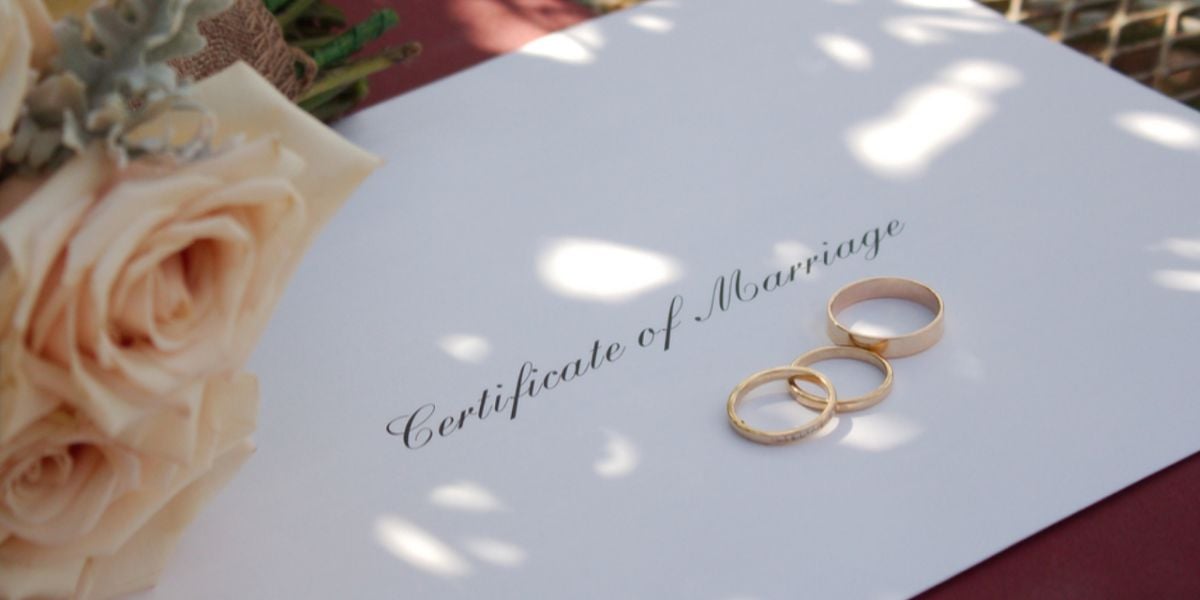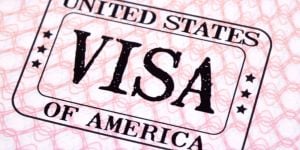
Marriage is a contract that commits two people emotionally, legally, and materially. In the US, both same-sex and opposite-sex couples can get married legally. If you want to get married in the United States, first, congratulations on finding love. Even if you are not a country resident, you can still get married here. However, it is very important that you know and understand all the related proceedings.
Disclaimer:
Please note that the information provided in this article is valid at the time of publication. However, as regulations may change (especially from state to state), it is strongly advised that you check the most up-to-date policies in appropriate sources before making your marriage license application plans.
General requirements of marriage in the US
Whether you are a citizen of the country or not, you will need to meet the following requirements to get married in the US:
- Both marrying parties need to be of the legal age of consent. In most states, this is 18 years old. However, marriages at a younger age may also be allowed with parental consent.
- You can't be too closely related. The exact definition of “too close” varies from state to state — and in some places, it is legal to marry your first cousin.
- You must be of reasonable mental capacity. This means that both partners must understand what they are doing and the consequences of their actions.
- Both parties need to be unmarried at the time of applying for a marriage license. Proper documentation will be required.
Obtaining a marriage license in the US
A marriage license is a document that authorizes you to get married in the United States. The rules on how, when, and where you can obtain a marriage license may differ from state to state, but they are generally acquired by visiting a county clerk. We suggest contacting the related administrative body at your location (a county clerk's office or marriage license bureau) to check about the related proceedings.
In most cases, you will need the following documents to apply for a marriage license:
- A government-issued photo ID (driver's license or passport);
- Birth certificate;
- Social security number (for US residents);
- A divorce decree (if you were previously married and are currently divorced);
- A death decree (if you were previously married and your spouse has passed);
- Parental consent (if you are underage);
- There is also a fee to be paid (the exact amount varies from state to state).
Good to know:
Requirements vary by county and state. Some counties may require proof of residency, a valid visa, or an affidavit of eligibility to marry. Non-citizens are usually asked for a passport or government-issued ID. Some states may also require a certified birth certificate.
When to apply for a marriage license in the US?
In most states, marriage licenses are only valid for specific periods — and these can range from days to months. In most cases, there is also a waiting period, which can take up to a few days. It is very important to make sure you don't get your marriage license too early or wait till the last minute to apply for it. Before you can apply for a marriage license in the USA, you generally need to know where and when you'll be getting married.
Obtaining a marriage certificate in the US
Once you have obtained your marriage license, you must get it signed by the officiant (a person recognized by the state who officiates your wedding) and your witnesses on the day of your wedding.
Following that, the officiant will send the license back to the clerk's office where you obtained the license. In most cases, you will then be mailed your marriage certificate at your specified address. Alternatively, you may need to buy certified copies of your marriage certificate — you will need them if you decide to change your name later.
Note that the requirements above relate to making your union legal in the eyes of the law. If you are also performing a religious ceremony, additional requirements may apply.
Marriage regulations for non-citizens in the US
Generally, the requirements for getting married in the US are the same for both citizens and non citizens — aside from the need to provide social security numbers. In most cases, non-citizens will be asked to provide passports as forms of identification. However, in some states, they may also be asked to provide certified copies of birth certificates.
Before making any wedding or travel plans, we suggest you check with the local county clerk/marriage official about the specifics of the proceedings and what documentation you need to provide so that your union is recognized in your home country.
If your home country is a member of The Hague Convention, this means that it has already officially agreed to recognize all the official documents obtained in other countries if they are attached to an apostille. This is a certificate given to verify that the stamp/seal/signature on a document is authentic and official.
Good to know:
It's important to remember that marriage to a US citizen does not automatically confer immigration status. The process of obtaining a Green Card through marriage is now more strictly regulated than ever under the current Trump Administration.
Steps to take before getting married in the US
- Make sure all the required documentation is translated into English.
- Check if your home country will recognize a marriage license obtained in the United States.
- Note that if your marriage in the US violates the marriage policy in your home country, it will not be valid.
- If you are travelling to the US specifically to get married and are inviting family and friends, make sure all the involved parties have proper travel documentation valid at the time of your trip.
Note that if you are in the US on a travel visa and plan to get married during your stay and leave before your visa expires, it's okay to do so. However, a travel visa should not be used to enter the United States to marry to stay in the country permanently. If this is your plan, you should apply for a fiancé or spouse visa.
Marriage to a US citizen and the Green Card process
Let's look at two scenarios here: the first one is that you and your future spouse are already both living in the United States, and the second one is that your future spouse is in the United States and you are not.
Marrying a US citizen while in the US
If you are already in the United States and intend to marry a US citizen and pursue a Green Card, this will involve Adjustment of Status. After registering your marriage, you can apply for a marriage-based Green Card.
With a marriage-based Green Card, you can live and work anywhere in the United States. You will be granted permanent resident status and can then apply for US citizenship if you want to do so.
To get a Green Card, you will need a sponsor — in this case, it will be your spouse. You can typically apply for a Green Card right after you get your marriage certificate. There are generally no wait times or caps for marriage-based Green Cards. However, the process can still take quite a bit of time, from a few months to a couple of years.
Important:
- Currently, only the 01/20/25 edition of Form I-485 (Adjustment of Status) is accepted.
- Applicants must use the same form edition for every page in their submission. Mismatched editions can result in rejection.
- There is currently stricter scrutiny of application completeness. Applicants must now submit stronger documentation of a legitimate marriage, such as joint leases, financial records, and affidavits.
- If the marriage is under two years old at the time of Green Card approval, the applicant will be granted a two-year conditional Green Card. They must later file Form I-751 to remove conditions and receive a full 10-year Green Card.
You also need to be aware of the 90-day rule. This rule is a US Citizenship and Immigration Services (USCIS) guideline. Its goal is to ensure that Green Card applicants from within the US haven't misled the officials on their initial applications.
The rule means that as a temporary visa holder (travel visa, work visa, etc.), you cannot apply for the Adjustment of Status within the first 90 days of your stay in the United States. If you do, there is a very strong chance that your application will be denied.
During your Green Card application process, your spouse will be your sponsor. This means that they will need to provide proof of sufficient funds to support you and also have all their tax papers in order. You will apply for your Green Card together with your sponsor — this process is called concurrent filing. All the applications that are filed from within the United States go through the USCIS. This requires a biometrics appointment and an in-person interview.
The purpose of the interview is to determine whether the relationship with your spouse is genuine. You must provide honest answers to all the questions — otherwise, your application may be denied.
Marrying abroad
If you live outside the United States and intend to marry a US citizen and pursue a Green Card, you have two options.
The first one is to get married outside the US. In this case, you must apply for a Green Card through a United States embassy or consulate. The process includes a medical exam and an interview (among other things) and can take quite a bit of time. However, once you get a Green Card, you can start living and working in the US immediately.
Your second option is to go to the United States first on a K1 visa (fiancé visa), which will allow you to get married in the United States and then apply for the Adjustment of Status as described above.
Recent changes to the process:
- Currently, only the 01/20/25 edition of Form I-129F (Fiancé Visa) is accepted.
- The I-130 form (Petition for Alien Relative, edition 04/01/24) now includes updated consular processing details and warnings against marriage fraud.
To apply for the K1 visa, you will need to meet several requirements. One of the main requirements is that you must have met your fiancé in person within the previous 2 years. After receiving a fiancé visa and entering the US, the couple must marry within 90 days.
Getting married quickly in the US
As mentioned above, specific requirements and waiting times differ from state to state in the US. As a result, some states have become particularly popular as “quick wedding destinations” where the requirements are minimal and waiting times are short. Here are a few examples:
Las Vegas
Probably the most known destination for a hassle-free “I do”, Las Vegas was featured in countless movies as the best place to elope and complete your wedding with an Elvis impersonator. There are good reasons for that.
Las Vegas has some of the most flexible state marriage laws in the country. There are no residency requirements, no waiting periods, or notice times. You will find many chapels and casinos that offer quick wedding packages — but while slots are typically easy to get, it is still safer to book in advance. You will need to decide on a few details (dress, flowers, decorations, etc.) — and you will need to arrange your marriage license in advance. There is a fee to pay, and you must present government-issued photo IDs.
New York
New York is another state with some of the most lenient and efficient marriage registration laws. The waiting period is just 24 hours, and there are no residency requirements. There are many options for locations, but if you want things to be really quick, you will probably head down to the Office of the City Clerk. Before going to the office, however, make sure to check the New York City Clerk's website for all the details. You will surely need to pay a fee and present government-issued photo IDs.
Hawaii
Hawaii is yet another popular destination for eloping. The island's striking natural beauty is a defining factor in this, but so are the friendly marriage registration regulations. Just like in New York and Las Vegas, there are no residency requirements or waiting periods. What's more, you can start your license application online. Once again, there are lots of offers for quick packages — and some of them even include a beach permit coordination if you want to hold your wedding on a beach. You will need to pay a fee and provide a valid ID.
Same-sex marriage in the US
On June 26, 2015, the Supreme Court decided to legalize same-sex marriages in all 50 states. Same-sex marriages are treated the same as heterosexual marriages under US law, and this includes related immigration procedures. While same-sex marriage is legal nationwide, individual states may have different levels of acceptance and support for LGBTQ rights.
Good to know:
Federal recognition of same-sex and interracial marriages is now protected under the Respect for Marriage Act (December 2022), which ensures that marriages legally performed in any state are recognized federally. However, LGBTQ travellers should be aware of increased scrutiny at US borders around gender markers on documents that differ from those assigned at birth, or those that carry the ‘X' marker. The most up-to-date information on this can be found here: Lesbian, Gay, and Bisexual Travelers Travel Information.
Divorce in the US
In the United States, neither the consent of both spouses nor a “fault” or reason is required to dissolve a marriage. If you find yourself in the unfortunate position of needing a divorce in the United States, remember that divorce laws vary by state, so it's crucial to understand the specific regulations and procedures in the state where you reside. Remember, the state laws where the divorce is requested will govern the divorce, not the state law where the marriage occurred.
Generally, divorce requires filing a legal petition, which may involve addressing issues like child custody, property division, and spousal support. It's advisable to consult with an attorney experienced in family law to guide you through the process and ensure your rights and interests are protected.
Useful links:
We do our best to provide accurate and up to date information. However, if you have noticed any inaccuracies in this article, please let us know in the comments section below.








